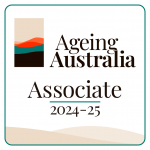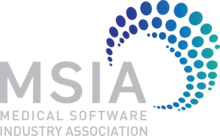
Case studies from residential care and home care
An Aged Care Clinical Information System (ACCIS) offers a game-changing solution by securely capturing, storing and sharing clinical data in real time. A digital framework centralising resident and client care data, an ACCIS includes medical history, medication records, care plans and progress notes. This helps staff make informed decisions at every stage of a person’s care journey.
Unlike finance or rostering software, both of which offer more flexibility in what they offer, an ACCIS must follow the Aged Care Clinical Information System Standards developed by the Australian Digital Health Agency (ADHA), ensuring consistency, reliability and seamless data integration across healthcare technologies.
Key features and benefits of an ACCIS
A robust ACCIS offers a sophisticated level of automation that frees up staff time to focus on direct care.
Along with real-time data sharing and electronic record keeping, this supports person-centred care and better outcomes for aged care residents, while also helping maintain compliance with the strengthened Aged Care Quality Standards.
Data-driven insights are also useful for identifying trends and risks, contributing to ongoing improvement.
When considering an ACCIS, look for one that contains the following features to maximise the benefits to your organisation:
- reliable, real-time data to ensure staff always have the most up-to-date information and can respond swiftly to changes in a resident’s health or condition
- seamless data sharing of key resident information (medical conditions, care plans, dietary preferences, etc) via centralised records accessible to all care professionals for tailored support
- accessibility and transparency to support better communication and engagement between care teams and external healthcare providers, leading to improved decision-making
- streamlined clinical decision making pathways for evidence-based care
- single data capture to securely reuse data across the system and reduce administrative burden, which improves efficiency and reduces paperwork. integration with other systems to provide you with seamless data oversight into your business.
A residential care provider’s experience
When a service provider finds themselves to be ‘not met’ against several standards, it is often Standards 2, 3 and 8 that require immediate focus using a risk-based approach to achieving compliance.
We have worked with many clients in this position, who see the positive benefits of our CareLynx Clinical Navigator clinical information system to fast track a return to compliance and then return the service to sustainability through adoption of the platform.
One of our clients, a 70-bed residential aged care home provider, faced a pressing need to meet Standards 2 and 3 after receiving an audit report.
By onboarding CareLynx Clinical Navigator, they quickly adopted in-built assessments that translated into person-centred care and support plans.
This approach not only led to a successful subsequent audit outcome but also established a framework for ongoing compliance – ensuring each resident’s needs continued to be met through sustainable clinical management.
CareLynx Navigator enables rapid adoption through a ‘plug and play’ approach. Our innovative data scripts and magic links streamline the onboarding process, ensuring minimal downtime. Coupled with our online self-service training portal,this makes CareLynx Navigator a cost -effective solution for providers without the resources to build or maintain their own clinical systems.
A home care provider’s experience
We are now seeing the same requirements for home care service providers with respect to clinical adherence to the standards, and the same systems are now proving beneficial for them.
A home care provider supporting 200 older clients reached out to us to support them in collating data efficiently, which had become a major challenge.
With their rostering and finance system not providing them with robust ways to capture the clinical care and support needs of their older persons, they needed a solution that was both straightforward to implement and capable of offering clear oversight.
Clinical Navigator’s reporting dashboard provided real-time visibility into their care operations, enabling the team to proactively manage clinical risk while meeting compliance requirements.
From a governance perspective, the provider’s board could now track metrics across the entire organisation at a glance – including National Quality Indicator reporting – streamlining decision-making and overall oversight.
Looking ahead
In both cases, the ability to fast-track compliance and embed person-centred care was underpinned by streamlined data management, a streamlined approach to onboarding and actionable reporting.
By aligning assessments, care plans and dashboards within one comprehensive system, providers gained a clear, ongoing view of resident and client needs. This not only supported immediate accreditation goals but also set the stage for continuous improvement in clinical and operational practices.
Looking ahead, if your organisation is ready to access the benefits of an ACCIS, reach out to CareLynx to ask us how we can help.



